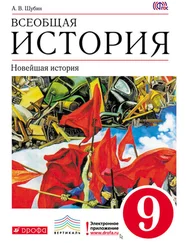Hewlett, S. A., Jackson, M., Sherbin, L., Shiller, P., Sosnovich, E. and Sumberg, K. (2009), Bookend Generations: Leveraging Talent and Finding Common Ground , New York: Center for Work-Life Policy.
Hinojosa-Ojeda, R. (2010), Raising the Floor for American Workers: The Economic Benefits of Comprehensive Immigration Reform , Washington, DC: Center for American Progress, Immigration Policy Center.
Hinsliff, G. (2009), ‘Home Office to Unveil Points System for Immigrants Seeking British Citizenship’, Observer , 2 August, p. 4.
Hobsbawm, E. J. (1959), Primitive Rebels: Studies in Archaic Forms of Social Movement in the 19th and 20th Centuries , Manchester: Manchester University Press.
House, F. (2009), The Business of Migration: Migrant Worker Rights in a Time of Financial Crisis , London: Institute for Human Rights and Business.
Howker, E. and Malik, S. (2010), Jilted Generation: How Britain Has Bankrupted Its Youth , London: Icon Books.
Human Rights Watch (2010), From the Tiger to the Crocodile: Abuse of MigrantWorkers in Thailand , New York: Human Rights Watch.
Internal Displacement Monitoring Centre (2010), Available at http://www.internal-displacement.org [accessed 2 December 2010].
Izzo, P. (2010), ‘Economists Believe Many Jobs Won’t Return’, Wall Street Journal Europe , 12–14 February, p. 7.
Johal, A. (2010), ‘Precarious Labour: Interview with San Precario Connection Organizer Alessandro Delfanti’, 11 September. Available at http://www.rabble.ca/blogs/bloggers/amjohal/2010/09/precarious-labour-interview-san-precarioconnection-organizer-alessan [accessed 3 December 2010].
Kellaway, L. (2009), ‘Why My Friend’s Job Delivers without Paying a Packet’, Financial Times , 13 July, p. 10.
Kerbo, H. R. (2003), Social Stratification and Inequality, fifth edition , New York: McGraw Hill.
Kingston, J. (2010), Contemporary Japan: History, Politics and Social Change since the 1980s , Hoboken, NJ: Wiley-Blackwell.
Knox, M. (2010), ‘Union Takes on Labor Over “Cheap” Foreign Workers’, Sydney Morning Herald , 12 February, p. 1.
Kohn, M. (2008), Trust: Self-Interest and the Common Good , Oxford: Oxford University Press.
Kosugi, R. (2008), Escape from Work: Freelancing Youth and the Challenge to Corporate Japan , Melbourne: Trans Pacific Press.
MacDonald, R. and Shildrick, T. (2007), ‘Street-Corner Society: Leisure Careers, Youth (Sub)Culture and Social Exclusion’, Leisure Studies , 26(3): 339–55.
Maher, K. (2008), ‘More in US Are Working Part-Time Out of Necessity’, Wall Street Journal Europe , 10 March, p. 10.
Mallet, V. (2009), ‘Soup Kitchen Queues Lengthen as Families Ignore Plight of Jobless’, Financial Times , 14 May, p. 4.
Maltby, L. (2009), Can They Do That? Retaking Our Fundamental Rights in the Workplace , New York: Portfolio.
Marcuse, H. (1964), One Dimensional Man: The Ideology of Industrial Society , London: Sphere Books.
Martin, P. (2009), Sex, Drugs and Chocolate: The Science of Pleasure , London: Fourth Estate.
Mayhew, L. (2009), Increasing Longevity and the Economic Value of Healthy Ageing and Working Longer , London: Cass Business School, City University.
McGovern, P., Hill, S. and Mills, C. (2008), Market, Class, and Employment , Oxford: Oxford University Press.
Mead, L. (1986), Beyond Entitlement: The Social Obligations of Citizenship , New York: Free Press.
Mitchell, T. (2010), ‘Honda Presses Staff not to Strike’, Financial Times , 31 May, p. 1.
Morrison, C. (2010), ‘The Relationship between Excessive Internet Use and Depression: A Questionnaire-Based Study of 1,319 Young People and Adults’, Psychopathology , 43(2): 121–6.
Mouer, R. and Kawanishi, H. (2005), A Sociology of Work in Japan , Cambridge, UK: Cambridge University Press.
Nairn, G. (2009), ‘Telework Cuts Office Costs’, FT Report – Digital Business , 12 March, p. 4.
National Equality Panel (2010), An Anatomy of Economic Inequality in the UK: Report of the National Equality Panel, London: Centre for Analysis of Social Exclusion and the Government Equalities Office.
Needleman, S. (2009), ‘Starting Fresh with an Unpaid Internship’, Wall Street Journal , 16 July, p. D1.
Nink, M. (2009), ‘It’s Always about the Boss’, Gallup Management Journal , 25 November.
Obinger, J. (2009), ‘Working on the Margins: Japan’s Precariat and Working Poor’, Electronic Journal of Contemporary Japanese Studies , 25 February.
OECD (2010a), International Migration Outlook 2010 , Paris: OECD.
OECD (2010b), A Profile of Immigrant Populations in the 21st Century: Data from OECD Countries , Paris: OECD.
Paine, T. ([1795] 2005), Common Sense and Other Writings , New York: Barnes & Noble, pp. 321–45.
Parliamentary and Health Service Ombudsman (2010), Fast and Fair? A Report by the Parliamentary Ombudsman on the UK Border Agency (fourth report), London: The Stationery Office.
Peel, Q. (2010), ‘German Popular Perception Fuels Furious Debate on Immigration’, Financial Times , 2 September, p. 4.
Pigou, A. C. ([1952] 2002), The Economics of Welfare , New Brunswick, NJ: Transaction Publishers.
Polanyi, K. ([1944] 2001), The Great Transformation: The Political and Economic Origins of Our Time , Boston, MA: Beacon Press.
Reeves, R. (2010), ‘Why Money Doesn’t Buy Happiness’, Observer Magazine , 25 April, p. 48.
Reeves, R. and Collins, P. (2009), The Liberal Republic , London: Demos.
Reidy, G. (2010), ‘Young, Single and Labouring Round the Clock’, NYT Business , 7 September, p. 13.
Richtel, M. (2010), ‘Hooked on Gadgets, and Paying a Mental Price’, New York Times , 7 June, p. 1.
Rigby, R. (2010), ‘The Careerist: What You Know Has a Shorter and Shorter Lifespan’, Financial Times , 22 February, p. 12.
Royle, T. and Ortiz, L. (2009), ‘Dominance Effects from Local Competitors: Setting Institutional Parameters for Employment Relations in Multinational Subsidiaries: A Case from the Spanish Supermarket Sector’, British Journal of Industrial Relations , 47(4): 653–75.
Saltmarsh, M. (2010), ‘Far from Home and Miserable in Sweden’, International Herald Tribune , 8 September, p. 3.
Sawhill, I. and Haskins, R. (2009), Creating an Opportunity Society , Washington, DC: Brookings Institution.
Schachar, A. (2009), The Birthright Lottery . Harvard, MA: Harvard University Press.
Sen, A. (1999), Development as Freedom , Oxford: Oxford University Press.
Sennett, R. (1998), The Corrosion of Character: The Personal Consequences of Work in the New Capitalism , New York: Norton.
Shildrick, T., MacDonald, R., Webster, C. and Garthwaite, K. (2010), The Low-Pay, No-Pay Cycle: Understanding Recurrent Poverty , York: Joseph Rowntree Foundation.
Si, L. (2009), The Ant Tribe: An Account of the Agglomerate Settlements of University Graduates , Guilin: Guangxi Normal University Press.
Simonian, H. (2010), ‘Adecco Rejects Slowdown Fears’, Financial Times , 12 Au gust, p. 11.
Sklair, L. (2002), Globalization: Capitalism and Its Alternatives , Oxford: Oxford University Press.
Soysal, Y. (1994), The Limits of Citizenship , Chicago, IL: University of Chicago Press.
Standing, G. (1989), ‘Global Feminization through Flexible Labor’, World Development , 17(7): 1077–95.
Читать дальше
Конец ознакомительного отрывка
Купить книгу






